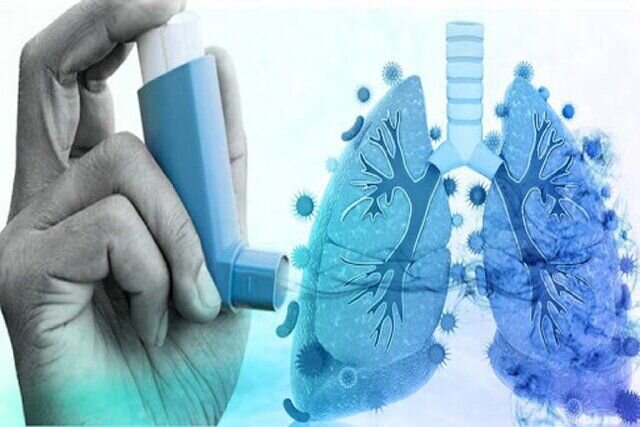World Asthma Day: education empowers

TEHRAN – The treatment of asthma, a chronic inflammatory lung disease, involves learning how to avoid risk factors as well as seeking medical help to manage the disease.
Asthma affects over 260 million people and is responsible for over 450,000 deaths each year worldwide which are preventable.
In this regard, World Asthma Day (WAD) is observed on the first Tuesday in May to raise awareness of Asthma worldwide.
Each year Global Initiative for Asthma (GINA), a World Health Organization collaborative founded in 1993, chooses a theme to celebrate the day.
This year, the day falls on May 7, and is celebrated under the theme of ‘Asthma Education Empowers’.
It highlights the need to empower people with asthma with the appropriate education to manage their disease and recognize when to seek medical help.
Asthma affects both children and adults, in children it is known to be mainly caused by allergies.
Unlike infectious diseases, asthma usually develops spontaneously, in other words, asthma is not caused by a disease.
While infections have no role in asthma development, they can trigger or exacerbate the disease or start an asthma attack.
In Iran, about 9 to 13 percent of people from different age groups are suffering from asthma with children being the majority. This means that the rate of asthma changes according to the age of people.
Also, the global prevalence of asthma is reported to be around 3-15 percent, reaching up to 20 percent in certain countries.
Patients with asthma should accept the fact that they have the disease and take effective measures to treat it.
Health facilities and academic centers are also responsible for educating patients that treatment involves more than medication; it also includes avoiding triggers that cause asthma attacks.
Asthma attacks begin with increased symptoms of coughing, wheezing, and shortness of breath, and as it progresses, it can lead to a drop in blood oxygen level. In such a situation, the patient should be hospitalized. Most asthma-related deaths are caused by an acute asthma attack resulting in shortness of breath and reduced oxygen levels.
Efforts in asthma education are being made by the Iran Society of Asthma and Allergy in cooperation with the Immunology, Asthma and Allergy Research Institute.
Asthma scientific conference is held every year concurrently with Asthma World Day, where the latest cases related to asthma management are discussed.
In addition to the scientific conference, a "family education conference" is also held to provide patients and their families with practical tips about asthma and its effective management.
Effective factors on Asthma development
"Genetics" and "environmental factors" play key roles in the occurrence of allergies manifesting in the form of "atopic eczema", "children's asthma" and "allergic rhinitis".
Environmental factors that contribute to allergies are divided into 2 categories: "allergens" and "stimulating factors".
Allergens are divided into 2 categories "external" and "internal". External sources include pollen from trees, grasses, and weeds. Dust mites, cockroaches, fungi, and pets such as cats and dogs are considered internal allergens.
Stimulating factors include not only smoking but also inhalations with a strong smell like detergents that can trigger allergic reactions.
Air pollution is an important factor that can exacerbate asthma.
Harmful air pollutants enter the respiratory system; these pollutants, depending on their size (particles of about 4 to 5 microns), can enter the "lower airways".
Also, very small particles are capable of penetrating deep into the lung and even enter the blood.
Most of these pollutants are free radicals that cause inflammation of the lungs or other parts of the body and are considered among the most harmful ones.
So metropolitan areas being more polluted contribute to increased rates of asthma and allergies in big cities.
Asthma diagnosis, treatment
Different breathing tests including bronchodilator challenge tests, exercise tests, methacholine, and exhaled nitric oxide tests, are performed in the country to identify the type of disease affecting the individuals.
After diagnosing the type of disease, new treatment methods such as administering biological drugs, and immunotherapy (injection of allergy vaccine) are offered.
People who have allergic asthma are subjected to "immunotherapy" and receive vaccine treatment.
One of the new methods for Asthma treatment involves utilizing biological agents such as Omalizumab ( Xolair) which is an anti-IgE medicine. Xolair is made to be similar to natural antibodies and is designed specifically to capture most of the IgE and block the allergic response.
It has been two years since the medicine was domestically made in the country and used by the patients.
Provinces with high prevalence of asthma
It seems like the rate of asthma is increasing in the country. As was said, pollution in big cities is one of the main reasons for the increase in asthma cases in the country.
The cities of Arak and Ahvaz and Sistan–Baluchistan province have experienced the highest prevalence of asthma.
By taking measures to control irritants and allergens, the prevalence of asthma can be reduced and managed.
Key universal issues
Key universal issues on which education is required are under- or inaccurate diagnosis, underuse of anti-inflammatory inhaled corticosteroid inhalers, overuse, and over-reliance on short-acting beta2–agonist (SABA) inhalers, and poor recognition of patients requiring specialist assessment and further management.
In low-middle-income countries, the lack of availability of inhaled medicines especially inhaled corticosteroid-containing inhalers is a major contributor to the fact that more than 90 percent of asthma deaths occur in these countries.
Policymakers and the pharmaceutical industry are called upon to increase their awareness of the continuing preventable morbidity associated with this common disease in spite of the existence of highly effective controller treatments, and to increase their efforts to ensure that environmentally friendly inhaled medications are made available in all countries, “leaving no-one behind”.
Leave a Comment